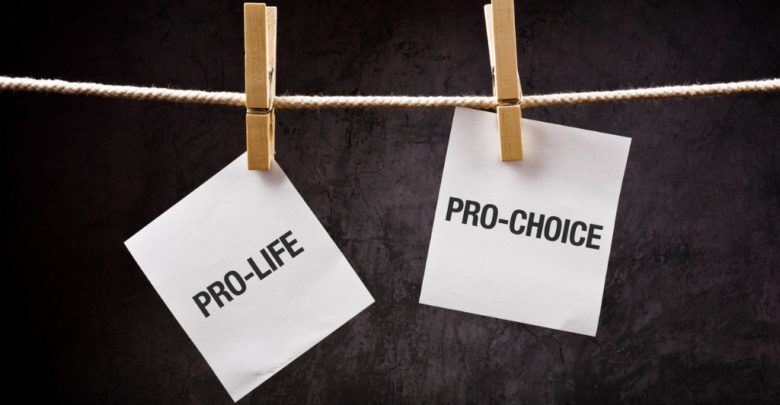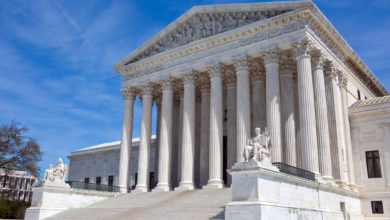What New York’s Reproductive Health Act Actually Says About Abortion

Sorry to disappoint Donald Trump, but New York State’s new Reproductive Health Act doesn’t have a “ripped from the mother’s womb moments before birth” clause.
And with all due respect to the Facebook crowd and the Twitterverse, it doesn’t say anything about euthanasia or killing babies after they are born.
To the contrary, New York law has always provided, still provides and (allow me a modest prediction here) will always provide that it is a crime to cause the death of any “person,” defined as any human being “who has been born and is alive,” under circumstances constituting murder, manslaughter or criminally negligent homicide.
I’d like to suggest that there’s a better, more honest, and more productive way to talk about this than to call people murderers, racists or fools.
For starters, how about looking at what the Reproductive Health Act actually says?
Novel idea, right? I know this seems like unnecessary bother to those who are complaining most loudly about the Act, but indulge me.
There is only one sentence in the entire Act that defines the timing and circumstances under which performing an abortion is lawful.
That sentence provides that an appropriately licensed health care practitioner may perform an abortion, “according to the practitioner’s reasonable and good faith professional judgment based on the facts of the patient’s case,” when (and only when):
“the patient is within twenty-four weeks from the commencement of pregnancy, or there is an absence of fetal viability, or the abortion is necessary to protect the patient’s life or health.”
Does this legalize ripping a baby from a mother’s womb moments before birth?
Only in the same way that laws protecting religious freedom legalize stoning adulterers, mutilating female children, or discriminating against people of different races or religions.
Or, more succinctly, No.
Castigating the Reproductive Health Act based on the worst possible abuse that one can imagine inevitably says more about the bias of the speaker than it does about the law itself. Any law setting the boundaries between lawful and unlawful activity can be subjected to absurd hypothetical worst-case analysis.
Similarly, criticism based on what somebody said about the Act, no matter who that person might be, is not meaningful and shouldn’t be taken seriously. You can always find something that somebody said that happens to confirm your preexisting bias.
Better to rely on what the law says than on what somebody says it says.
Reading the Reproductive Health Act as it is written shows that it contains significant protections against the hypothetical abuses with which its critics are obsessed.
Only duly licensed health care professionals may perform abortions. Their decisions have to be based on “facts” and “good faith professional judgment.” And after twenty-four weeks, they can perform the procedure only when the fetus is not viable, or the abortion is “necessary” to protect the patient’s life or health.
This is not an extreme departure from New York’s previous law regulating abortion. The major difference is that the Reproductive Health Act permits abortions after twenty-four weeks when necessary to protect the patient’s life “or health,” whereas the previous law permitted such abortions only to preserve the mother’s life.
Extending protection to the health, not just the life, of the mother is entirely consistent with the existing law of the land as set out in the Supreme Court’s decision in Roe v. Wade. Roe held that states may outlaw abortions after fetal viability except where “necessary to preserve the life or health of the mother.”
None of this is to suggest that the debate between pro-life and pro-choice advocates is illegitimate. It isn’t. Or that informed legal debate about the constitutional underpinnings of Roe v. Wade is out of bounds. It isn’t.
But can we at least please stop the uninformed blather about ripping babies from their mother’s womb moments before birth? Can we stop the silly talk about killing babies after they are born?
Can we instead have an informed conversation about what the law actually says, rather than what we heard somebody say about it?





Philip
Thank you for clarifying this issue. Not having the true facts left me conflicted and confused. It is difficult to sort through the maze of misinformation that abounds here. Once again, you saved the day.
(1) Everyone in their right mind is pro-life; (2) Apparently Americans will never quit trying to control and re-control a woman’s reproductive rights; (3) You better pray that Justice Ginsburg outlives President Trump’s term of office; (4) Lastly, it is probably wise to understand that as excellent and albeit greatly flawed as our Constitution was at the outset, so often now it is simply an unwieldy millstone around the necks of a perplexed and politicized judiciary.
Let us also be absolutely clear: religion was the progenitor of interference with a woman’s right to equal consideration under the law–and it always will attempt to restrict that right.
Thank goodness Philip reads, and tells the truth, unlike the President.